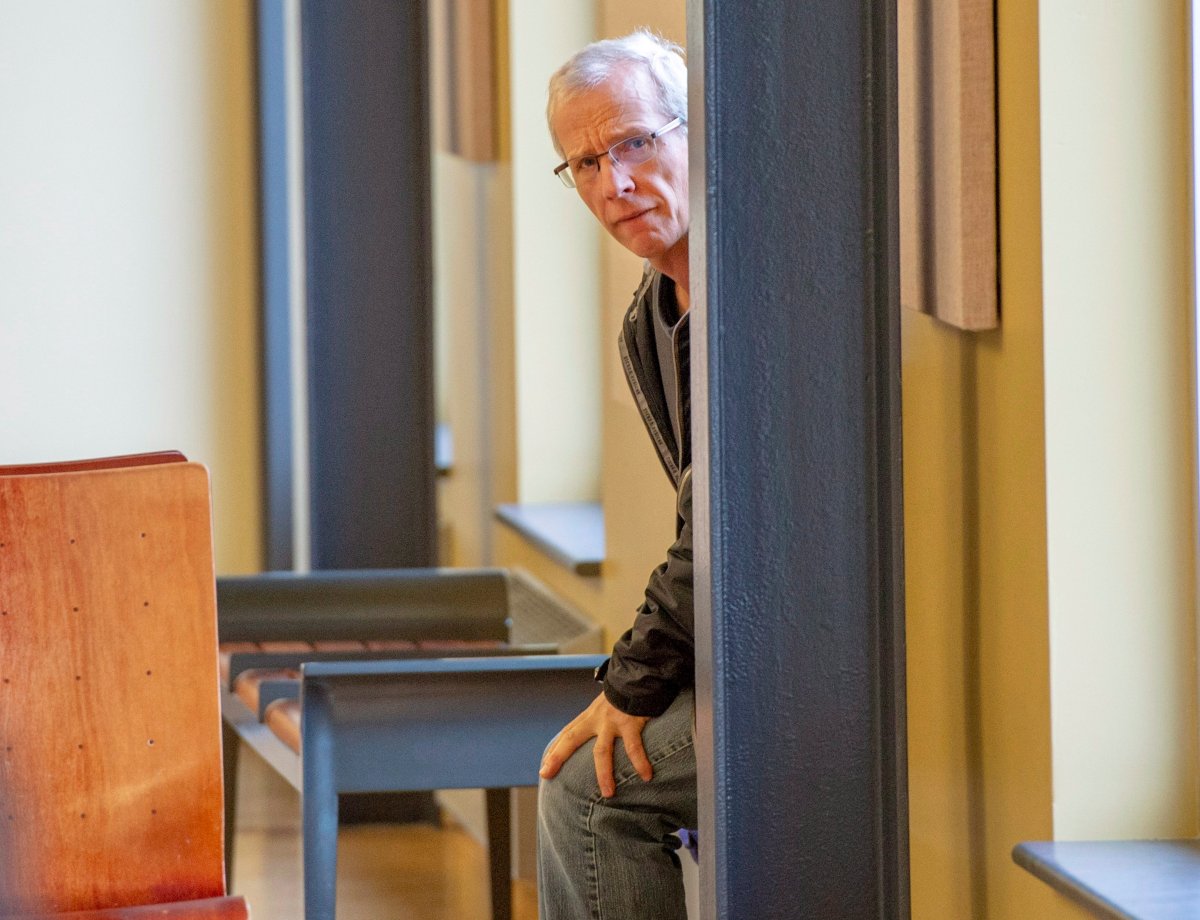The Crown says it will seek the maximum sentence for a pilot who nearly crippled Hydro-Québec’s entire power grid in a 2014 act of sabotage.

Final sentencing arguments began Wednesday in the case of Normand Dubé, described in local media as a “pilot to the stars” for his past life transporting well-known Quebec entertainers.
Prosecutor Steve Baribeau said he wants Dubé, 56, to serve a 10-year sentence for what he described as an unprecedented attack.
READ MORE: Quebecers asked to reduce power consumption after nearly 200,000 left without electricity
“The lines targeted in those attacks were the jugular and the spinal column of the Hydro-Québec hydroelectric network,” Baribeau told the court. “It’s rare that a prosecutor will ask for a maximum sentence, but in this case, it’s necessary because of the unique character of this case and the high level of moral culpability.”
Dubé was found guilty in September on three counts of mischief after he used a small plane to shut down transmission lines serving a wide swath of southwestern Quebec.
The exact method used to create a short-circuit in the Dec. 4, 2014 attack cannot be reported under a publication ban imposed in the interest of national security.
Much of the trial took place with the public barred, and the decision finding Dubé guilty in September is partially redacted.
At trial, Dubé denied the allegations and argued he could not have mounted the attacks.
‘He put into danger the most vulnerable members of all society’
The Crown said Dubé carried a grudge against Hydro-Québec stemming from a dispute over work done by the utility on land he owned in Sainte-Anne-des-Plaines. Dubé also blamed the utility for his tax problems, Baribeau said Wednesday.
The prosecutor told Quebec court Judge Paul Chevalier that no previous mischief case comes close to Dubé’s “lone wolf” attack, which struck at the heart of institutions and affected ordinary Quebecers.
“What could be worse to destabilize a society than to cut electricity on such a large scale?” Baribeau asked.
“In one strike, he put into danger the most vulnerable members of society, all while compromising the smooth running of the province’s economy.”
Some 188,000 people were left without power during two winter days as a result of the attack. Institutions including McGill University’s health network were also affected. Some companies had to reduce power consumption, and Hydro-Québec temporarily cut its exports.
A former Hydro-Québec executive testified the outage cost the public utility $28.6 million — a cost assumed by all Quebec taxpayers.
READ MORE: Hydro-Quebec works to restore power to thousands of customers
Baribeau asked the judge to send a clear message to dissuade anyone thinking of carrying out similar crimes.
Dubé’s trial heard that despite his lack of post-secondary education, he was particularly inventive. He designed on his own a single-engine airplane known as the Aerocruiser, of which he sold dozens. He also created solar energy systems and invented a machine to eliminate bugs from greenhouses growing tomatoes.
Baribeau said the crime against Hydro-Québec suggests a high degree of planning and demonstrates how Dubé’s superior intellect made him all the more dangerous.
“You have someone before you who is extremely determined,” he said.
Earlier Wednesday, a Terrebonne police officer detailed the contents of computers seized from Dube’s home, revealing that the grudge against Hydro-Québec was not his only one.
Marc Lalonde told the court police found information on some 29 people — audio recordings, personal information and photos. The list included businessmen, customs officials and city workers with whom Dubé had disputes.
Baribeau also asked the court to order the confiscation of the plane Dubé used in the attack.

Comments